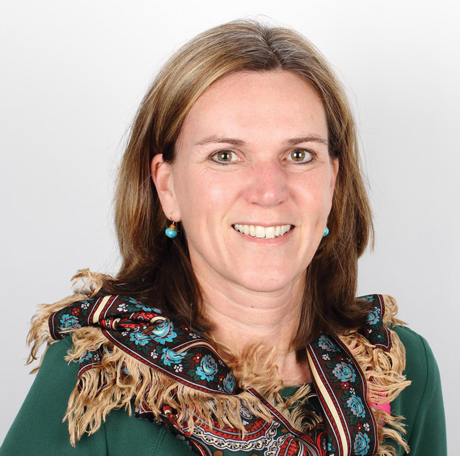Dutch mortgage provider Obvion, owned by Rabobank, issued its first ever green RMBS transaction in June 2016. Joanne Hart looks at how it fared in this new market.
Obvion is one of the leading mortgage providers in the Netherlands, with some 190,000 customers and a portfolio valued at more than €30bn. Wholly owned by Rabobank since 2002, Obvion sources all of its funding externally and has issued more than €40bn of securitisation deals.
In June of this year, however, Obvion broke new ground, issuing the first ever, green residential mortgage-backed securities (RMBS) transaction, Obvion Green Storm, backed entirely with energy-efficient homes or those that had made significant improvements to their carbon footprint.
“We take social responsibility very seriously and it is an integral part of our culture. So we’ve been talking about the possibility of a green bond for about two years, visiting conferences and discussing the idea with green investors,” says Rachelle Rijk, head of funding and balance sheet management at Obvion.
Green on green
Conventional wisdom suggests that green bonds can appeal to a wider investor base than conventional bonds because both green and traditional investors can purchase them. Obvion was very clear from the start, however, that this was not a route it wanted to follow. “We wanted to put the greenest assets in the pockets of the greenest investors,” says Ms Rijk.
This created several challenges. First, Obvion needed to identify its green assets. Second, it needed to identify green investors and third, it needed to seek out which of those green investors would be interested in an RBMS issue.
The first challenge was the simplest.
“The Netherlands has energy labels from G to A for homes and the top 15% - with an A or B rating – were eligible for the green transaction. Homes were also selected if they had improved their energy rating by 33%, equivalent to two notches with a minimum of definitive label C. And for some green investors, this section of the portfolio was the most interesting,” says Max Bronzwaer, executive director and treasurer at Obvion.
Obvion then had to identify suitable investors, a project undertaken with lead managers Société Générale and Rabobank.
“Société Générale has worked with us since 2004, we have a strong relationship with [the bank] and it seemed very well positioned to help us with our first green transaction. Rabobank was also chosen as a good lead manager and structure for this transaction,” says Mr Bronzwaer.
Scoring system
The banks were mandated a few weeks before Green Storm was launched but they had been preparing the ground since the end of 2015, discussing possible structures and talking to both credit rating and green rating agencies.
The banks also devised a scoring system to define investors’ green credentials. Eight criteria were identified, including whether investors had signed up to the UN Principles of Responsible Investment, whether they were members of the Institutional Investor Group on Climate Change and whether they had received an environmental, social and governance score from specialist consultancy Sustainalytics. The criteria were then weighted so that Obvion could clearly see which investors were the ‘greenest.’
“Both banks did a very good job at identifying the right investors, working on the eligibility of assets and obtaining the necessary ratings,” says Ms Rijk.
Having selected both the assets and the investor universe, Obvion embarked on a six-day roadshow, encompassing the Netherlands, Paris, Frankfurt, Zurich, Geneva and London.
“It was an extensive trip for us. Most conventional investors know us well but this deal was targeted at a new type of investor so they wanted to know exactly how the deal would work and how the assets had been selected,” says Mr Bronzwaer.
“We know that some investors have a green mandate and some have an RMBS mandate but this deal covered both so investors had to work out whether they could accommodate it,” adds Ms Rijk.
Going down a storm
On June 7, the books opened on Green Storm, with initial price talk of 35 basis points over three-month Euribor. At the time, Obvion had set aside a pool of €270m. “Normally, our transactions range from €750m to €2bn so this was a very small deal for us. But this was not about size or spread. It was about opening up a new market,” says Mr Bronzwaer.
The book-build was scheduled to last for two days to give investors time to acclimatise to the new bonds but within a few hours, the book had grown to more than €1.2bn. “On the basis of such strong demand, we were able to do what we had wanted to do all along – allocate bonds to green investors only,” says Mr Bronzwaer.
The news was communicated to the market on day two of the bookbuilding process, at which point the pricing was tightened to a spread of 31 basis points plus or minus one basis point.
Ultimately, the issue was increased to €500m and the spread was fixed at 30 basis points. “We were very pleased with the way the deal developed. It gives us confidence that Green Storm can be part of our broader Storm RMBS programme. It will never be the largest part because at the moment only the 15% greenest assets are eligible but it will certainly have a role to play,” says Mr Bronzwaer.



